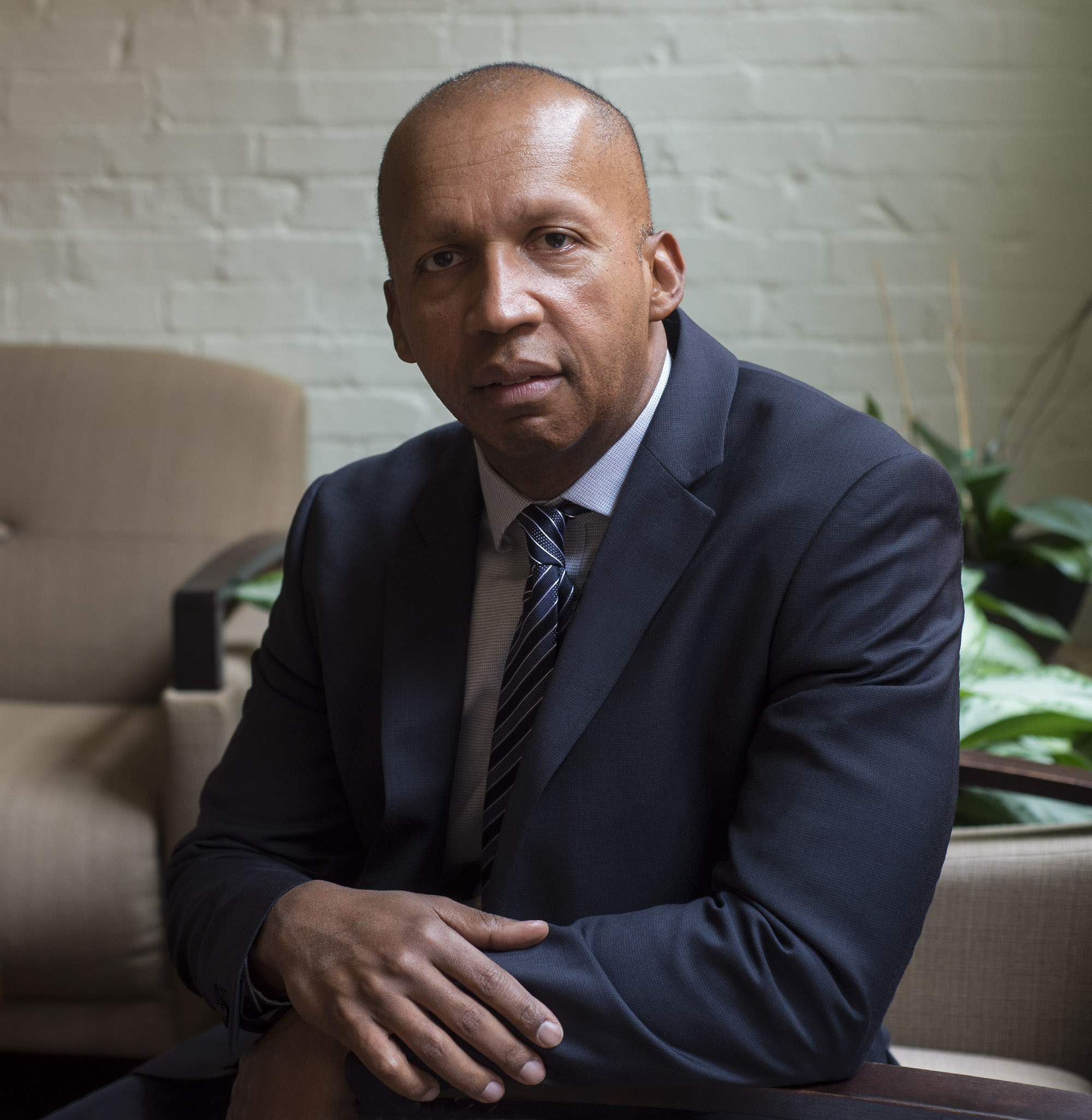
By Solomon Crenshaw Jr.
For The Birmingham Times
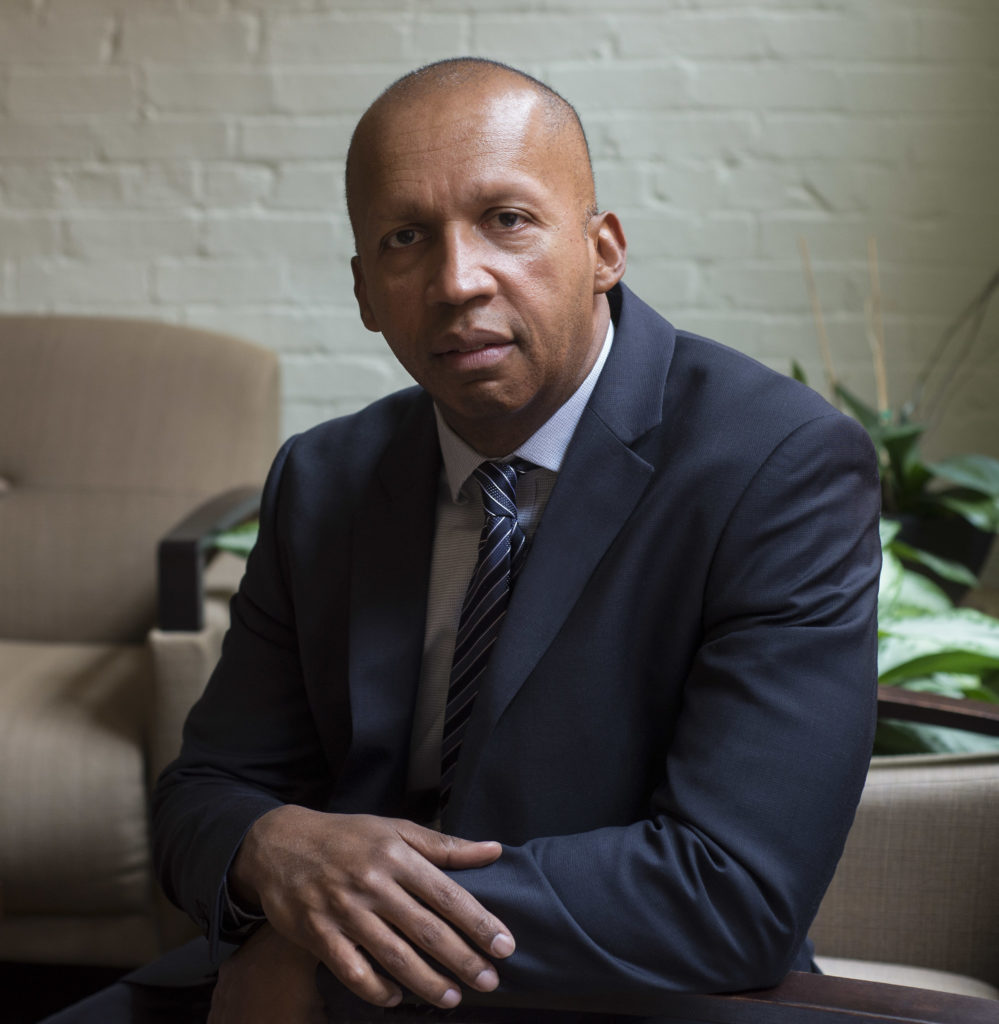
Bryan Stevenson never expected to stay in Alabama.
He came to the state in the mid-’80s to help set up a nonprofit program that represented death-row inmates.
“I was trying to get it set up and return to Atlanta, go back to my practice there,” Stevenson said. “One thing turned into another, and here I am all these years later.”
Indeed, all these years later, the founder and executive director of the Montgomery-based Equal Justice Initiative (EJI) continues to fight against poverty and racial discrimination in the criminal justice system and is internationally recognized as a powerful advocate for the underserved.
His awards, accomplishments, and acknowledgements are three pages long, single-spaced. He has written a New York Times bestseller, “Just Mercy: A Story of Injustice and Redemption,” and has received prestigious awards, including the MacArthur Foundation Fellowship Award Prize, the American Civil Liberties Union (ACLU) National Medal of Liberty, and the Birmingham Civil Rights Institute’s annual Fred L. Shuttlesworth Human Rights Award.
Stevenson and EJI, founded in 1994, have helped get innocent people off death row after proving they were either illegally sentenced or unfairly or wrongly convicted. In addition, he and his team of lawyers have won cases at the U.S. Supreme Court level that have helped children who were prosecuted as adults.
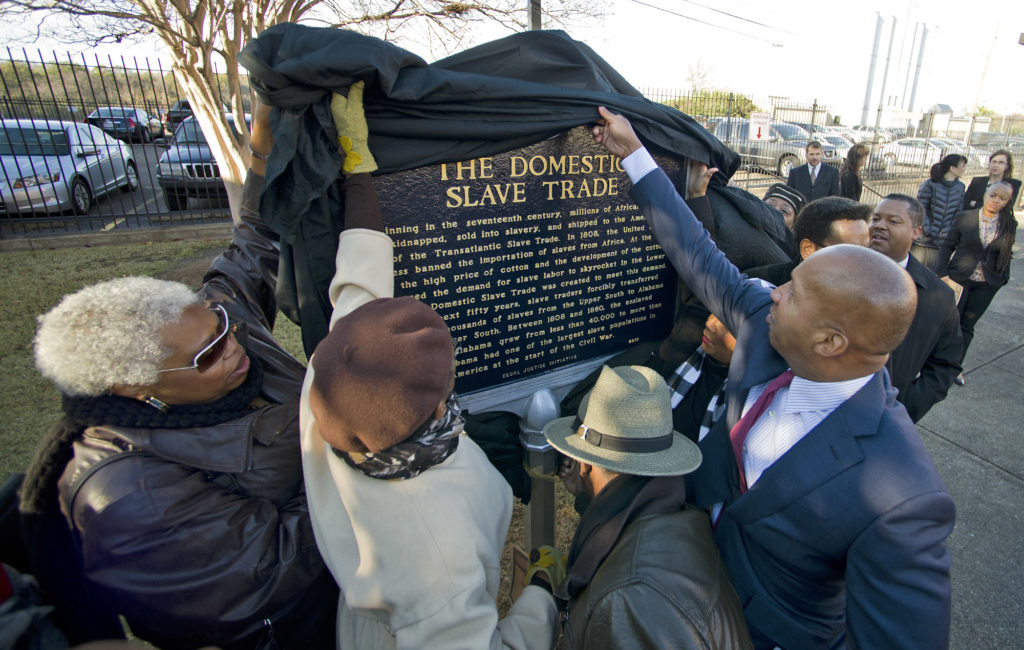
With Hope
Earlier this month, nearly 2,000 people crammed into Samford University’s Howard College of Arts and Sciences and Frances Marlin Mann Center for Ethics and Leadership to hear Stevenson deliver a lecture.
Mann Center Director and former Alabama Supreme Court Chief Justice Drayton Nabers presented Stevenson with the center’s Mann Medal in Ethics and Leadership. The award honors leaders or organizations whose efforts have made significant contributions to a more just and ethical society.
“There is no one in the United States who has pursued this mission more honorably, more effectively, more powerfully than Bryan Stevenson,” Nabers said.
Many lecture attendees waited afterward in a long line to buy Stevenson’s book and to get him to autograph it. In many, he wrote, “With Hope.”
Teresa Pulliam, a criminal division judge of the 10th Circuit Court in Jefferson County who attended the lecture, said the legal system needs somebody as smart and caring as Stevenson.
“I’m comforted in the fact and feel very good that he is there to make sure all the judges and prosecutors in this state get it right, do things the right way, and protect the rights of the accused and those who are going through capital litigation,” she said.
Corey Green, a banker who grew up in Alabaster and Calera and now lives in Bessemer, said, “I find the cause he’s fighting for very attractive. I came from a very difficult background. A lot of my family and friends have fallen victim to what you would call an unfair justice system. They may or may not have made mistakes, but the sentencing guidelines have trapped our people for a while. [Stevenson’s] doing admirable work on that note.”
Patrick Packer, co-founder of Birmingham-based Black People Run Bike Swim, called Stevenson an unselfish leader: “He is a leader. He is an attorney. He’s making significant change, but he has not bought into the selfishness that you see in so many of our leaders. You can’t be compassionate and be selfish.”
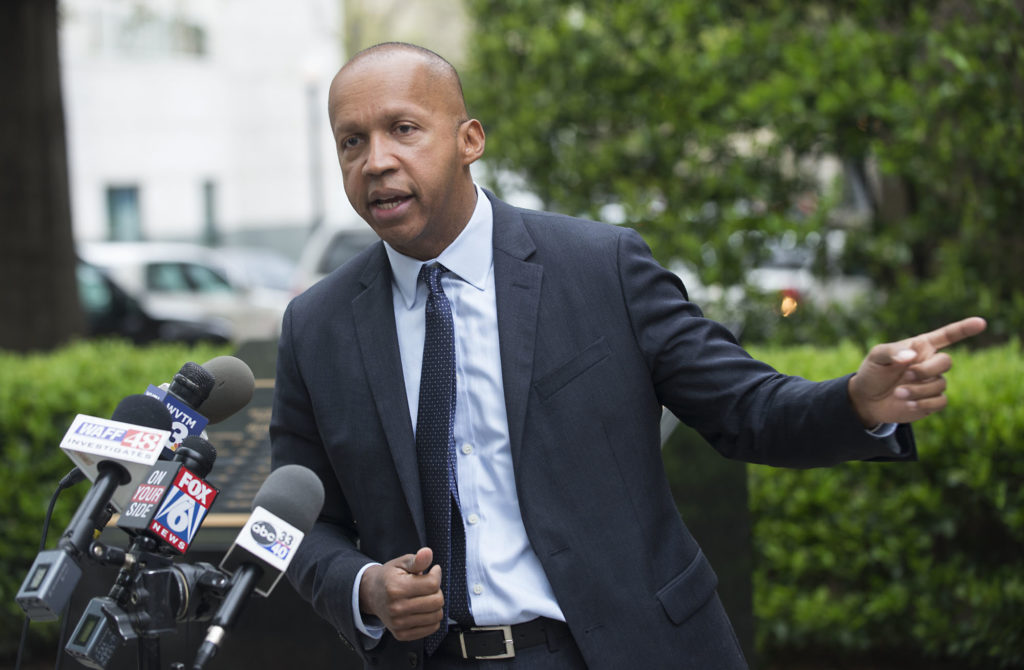
Why Alabama?
Stevenson said even he could not have imagined the impact he and his organization have had.
“You have to be hopeful. You have to believe things you haven’t seen,” he said. “I’m persuaded that hopelessness is the enemy of justice. If you allow yourself to get hopeless, you’re going to become part of the problem. Injustice prevails where hopelessness persists.”
Stevenson, 56, was raised in Sussex County in southernmost Delaware. As a result, the Milton, Del., native grew up amidst Jim Crow segregation. He also remembers his grandmother talking about the legacy of slavery, passed down from her enslaved parents.
After earning straight As in high school and graduating from Eastern University in St. Davids, Pa., Stevenson received a full scholarship to Harvard Law School. During law school, as part of a class on race and poverty litigation, Stevenson worked for non-profit Southern Center for Human Rights (SCHR), which represented death-row inmates throughout the South.
Early on, he saw injustices in Alabama.
“There was an urgent need to provide legal services to people on Alabama’s death row,” he said. “In 1989, about 25 percent of the executions that took place in America took place in Alabama. Alabama had no public defender system, had no statewide resources for people on death row.”
When Congress stopped funding that program, he founded the EJI 1994. The nonprofit in April 2015 won the release of Anthony Ray Hinton, who spent 30 years on death row for a crime he did not commit. The U.S. Supreme Court unanimously overturned his conviction based on his attorney’s deficient representation. According to the Death Penalty Information Center (DPIC), Hinton was the 152nd person exonerated from an American death row since 1973.
Stevenson said, “Race, poverty, inadequate legal assistance, and prosecutorial indifference to innocence conspired to create a textbook example of injustice. I can’t think of a case that more urgently dramatizes the need for reform than what has happened to Anthony Ray Hinton.”
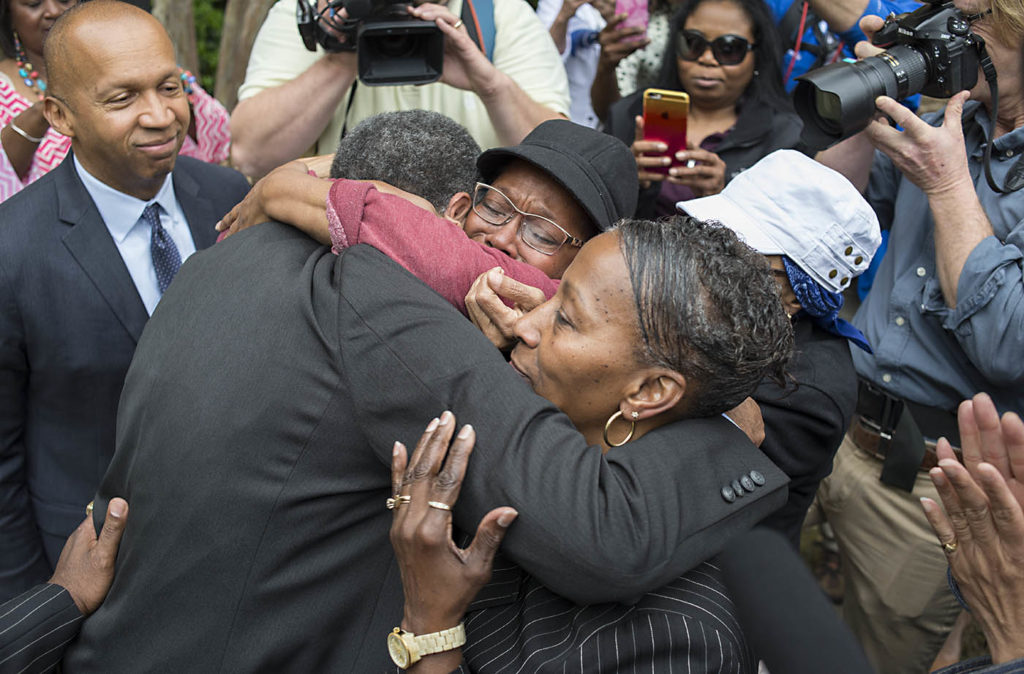
A Challenging, Wonderful Journey
Stevenson is unmarried and has no children, but he is very close to his brother’s two sons and his sister’s two daughters. Though he doesn’t have children of his own, he feels like he’s part of the countless families he has touched.
“I feel really rewarded. I don’t feel incomplete in any way,” he said. “I have been really fortunate to feel really loved by families and very nurtured by families and embraced by families. It’s been a challenging journey but a wonderful journey at the same time.
“I want to do that as long as God lets me,” he continued. “I’m fulfilled by that. I’m affirmed by that. If we can create more justice in this country, if we can create more opportunities for people who’ve been excluded and biased, if we can bring down the prison population, if we can get a healthier conversation about race in America, then I will feel like I have done what I would like to do, what I feel like I should do.”




